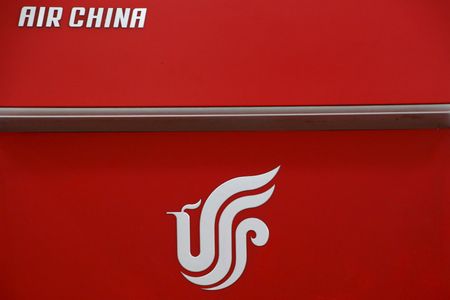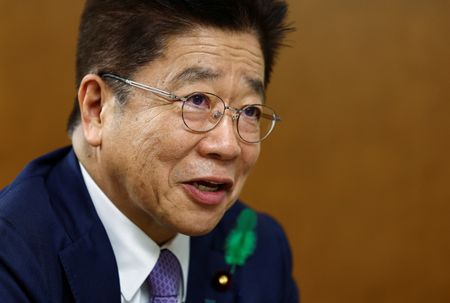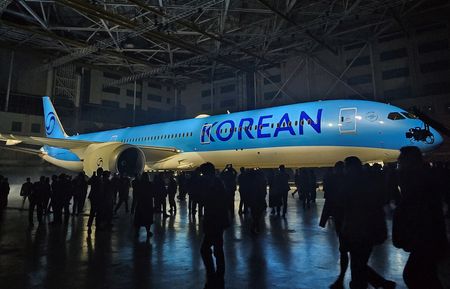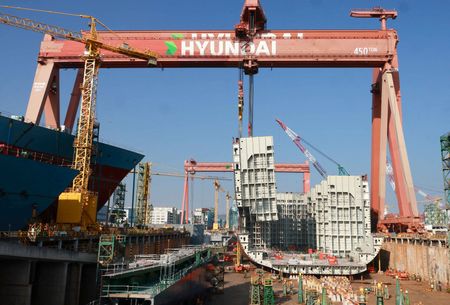BEIJING (Reuters) -South Korea’s decision to grant visa-free entry to Chinese tour groups will lift China’s weak outbound travel numbers but not enough to boost the bottom lines of struggling Chinese airlines, analysts said.
Travel to South Korea, the third most popular outbound destination for Chinese tourists after Japan and Thailand, has been one of the few bright spots as overall outbound travel still lags below pre-pandemic levels.
Airlines are looking to increase those numbers as Seoul opens up a temporary visa waiver for Chinese passport holders.
The scheme will run from late September, just before China’s week-long National Day holiday, until the end of June next year, following a decision by Beijing last November to grant visa exemptions to South Koreans and foreign visitors from other countries.
Flight capacity between China and South Korea has rebounded to 105% of pre-pandemic levels, according to aviation data provider Flight Master, higher than China’s overall international capacity, which stands at 93% of pre-pandemic levels.
But analysts say while the visa waivers may lift passenger numbers, airlines’ profitability could remain under pressure due to intensifying competition that is dampening ticket prices.
The top three state-owned carriers reported deeper first-quarter losses, adding to the 206.3 billion yuan ($28.9 billion) cumulative losses they posted in the last five consecutive years.
State-owned China Southern Airlines, Air China, and China Eastern will report their first-half earnings later this week.
“Due to the short distance, the routes (between China and Korea) are already oversupplied and fares are low,” said Li Hanming, a U.S.-based independent aviation analyst.
“Most travellers in higher-tier cities have already obtained their long-term… visa, so group tours matter more in lower-tier cities, but those passengers are relatively price-sensitive and won’t pay premium fares.”
Weak margins will deepen investor concern over the financial health of Chinese airlines, which have been severely affected by the trade war between Washington and Beijing.
“I don’t expect any alleviation of these challenges for the three major airlines in the second half of the year,” said Li.
Data from Trip.com Group shows top-tier cities Shanghai, Beijing, Hangzhou and Shenzhen are among the top ten source markets in mainland China for travel to South Korea.
Some experts caution that an increase in travel demand for South Korea could be a short-lived bump.
“A blip when the policy kicks in, then a fade, exactly what we saw with Singapore,” Su Shu, founder of Chengdu-based Moment Travel, said, referring to the only developed country so far to offer Chinese passport-holders visa-free access.
South Korea’s appeal is “close and cheap, not for sightseeing. Repeat visitors are few,” she said.
($1 = 7.1495 Chinese yuan renminbi)
(Reporting by Sophie Yu, Brenda Goh; Editing by Miyoung Kim and Saad Sayeed)











